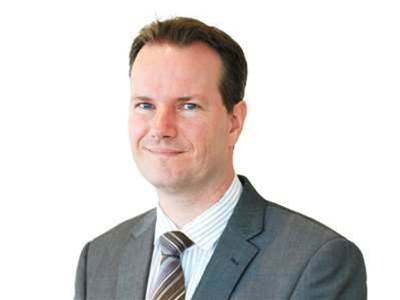Since Allianz Global Assistance’s Luc Derix took over as chief information officer last December, the former business intelligence manager has found the challenge as much about culture as technology.

Derix joined the insurer’s business intelligence division in 2009. Unlike at some other organisations, the division does not report into IT.
Derix says coming from the business has been an advantage, allowing him to act as a bridge between IT and the business and sell the ideas of his new team to the wider company.
In the past nine months – first as acting CIO, then as CIO in May – Derix has overseen a range of IT projects including a transition to thin client computing and the rationalisation of e-commerce platforms.
But his main task has been change management, he says.
“I think we were seen as a cost centre that would keep the lights on and do development here and there,” Derix says. “The business wasn't very comfortable engaging us and we weren't too good at engaging the business.
“Because I come from the business, I understand it very well and I have a lot of relationships that I've been able to leverage in the new role.
“I put a lot of focus in the beginning on the fact that we are a partner to the business and we can drive revenue and profit.”
Derix replaced CIO Abdul Hussein, now the principal at Brisbane technology consultancy Milestonz Consulting.
An Allianz Global Assistance spokeswoman would not discuss the circumstances of Hussein's departure. She said the company considered both internal and external candidates for the job.
Part of Derix’s job is to decide what his team in Australia – 56 people mostly in the Brisbane suburb of Toowong – should handle and what should be assigned to a team in Thailand.
Allianz Global Assistance already uses the Thai resource but Derix wants to ramp that up over the next two years.
“The things that require knowledge of internal systems we'll keep doing here and the things that are a bit more cookie cutter and repetitive will go to Thailand so there's less risk,” he says.
He adds that working with outsourcers – even ones within the same organisation – requires a more formal way of doing things.
“If you have business knowledge you can make certain assumptions but when you outsource you can't so you need better documentation,” he says.
Derix says he tries to create a work hard / play hard environment within his IT department.
“I try to engage all staff within the department - I walk the floor a lot and I am out of my office a lot to try to touch base with everyone,” he said.
“I see more people managing to talk about work and the barriers within the department between teams are largely broken down.
“It's been a little bit faster than I thought it was going to be – I thought it would take 12 months but I look at the floor now and it's pretty much there.”
Technology projects
Currently, much of Derix’s time is consumed by a virtualisation project to replace desktop computers with VMware thin client virtual machines.
The project will replace up to 450 ageing desktops, most of which are out of warranty. About 150 machines have been replaced so far.
Derix says the virtualisation project will also ease the company’s global upgrade to Windows 7 and Office 2010.
“The project was started by my predecessor but I completely agree with it,” Derix says.
“From a helpdesk perspective it creates a lot of efficiency to not have individual PCs but a couple of images on the server.”
Another large project is consolidation of the company's e-commerce platforms, involving web development vendor Speedwell.
“Over the last few years we've created a fair bit of complexity with our e-commerce systems and we need to rationalise,” Derix says.


_(20).jpg&h=140&w=231&c=1&s=0)
_(23).jpg&h=140&w=231&c=1&s=0)
_(28).jpg&h=140&w=231&c=1&s=0)






 iTnews Executive Retreat - Security Leaders Edition
iTnews Executive Retreat - Security Leaders Edition
 Huntress + Eftsure Virtual Event -Fighting A New Frontier of Cyber-Fraud: How Leaders Can Work Together
Huntress + Eftsure Virtual Event -Fighting A New Frontier of Cyber-Fraud: How Leaders Can Work Together
 iTnews Cloud Covered Breakfast Summit
iTnews Cloud Covered Breakfast Summit
 Melbourne Cloud & Datacenter Convention 2026
Melbourne Cloud & Datacenter Convention 2026
 The 2026 iAwards
The 2026 iAwards












_(1).jpg&h=140&w=231&c=1&s=0)



